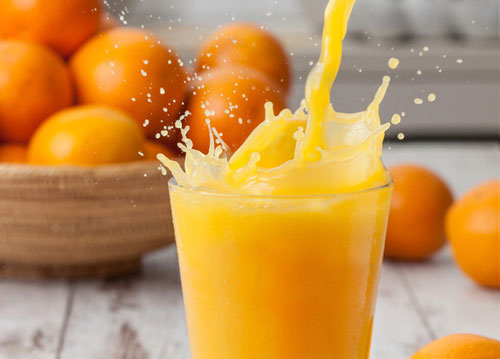Mainstream medicine has failed miserably in providing a solution to Alzheimer’s disease.
Some 5.5 million Americans now suffer from it. And that number is expected to triple by 2050. But there is no effective treatment for it.1
Five drugs have been approved by the FDA to treat Alzheimer’s. But none of these medications do anything to prevent, or even slow down, the disease.
They only address the early symptoms. And they don’t even do that very well. It has been 15 years since the last one was approved.
Now a new study shows that a common fruit juice may work far better against Alzheimer’s than anything Big Pharma has to offer.
The study was published in the journal Neurology. It looked at 27,842 men. Their average age was 51. The subjects filled out questionnaires detailing the types and servings of foods they ate each day. They did this when the study started and every four years thereafter for 20 years.
Before the study ended, the subjects took thinking and memory tests. By then the average age of participants was 73.
The questions included subjective assessments, such as… “Do you have more trouble than usual remembering a short list of items such as a shopping list?” And, “Do you have more trouble than usual following a group conversation or a plot in a TV program due to your memory?”
- 55% of the subjects had good thinking and memory skills.
- 38% had moderate cognitive skills.
- 7% had poor thinking and memory skills.
Subjects who consumed the most vegetables were 34% less likely to develop poor cognitive function compared to subjects who ate the least veggies.
But one diet component was more potent than any other in staving off memory loss…
Men who drank orange juice every day were 47% less likely to have poor cognitive skills compared to those who drank less than a serving a month.
Changzheng Yuan of the Harvard T.H. Chan School of Public Health was an author of the study.2
“Our studies provide further evidence dietary choices can be important to maintain your brain health,” she said.
5 Natural Ways to Fight Alzheimer’s
To minimize your risk of dementia…
- Drink orange juice. Based on the study cited above, a half a cup protects your brain. As always, go with organic if it’s available.
- Exercise. A study from the University of Texas Southwestern Medical Center concluded that being fit in middle age reduces dementia risk later in life.3 Other research confirms the findings.4
- Follow the Mediterranean diet. Research shows a link between this diet and reduced risk of cognitive impairment. Drink red wine in moderation. Eat plenty of vegetables, fruits, legumes, nuts, and olive oil. Have fish and chicken at least twice a week and moderate amounts of red meat.5
- Take coenzyme Q10 supplements. CoQ10 is suspected by researchers of having a neuroprotective effect.6
- Take ashwagandha. Ashwagandha is an herb prized in Indian Ayurvedic medicine. It is known to have a number of health benefits, and these may include fighting the amyloid plaques in the brain that are linked with Alzheimer’s.7
Editor’s Note: If you’re worried about Alzheimer’s, there’s something else you should know… It’s NEVER too late to build a strong brain. That’s why Dr. Nussbaum created his unique Ageless Brain Kit.
Related Articles
The Simple Secret to Better Brain Health
A Healthy Brain Needs a Healthy Heart
Need a Quick Burst of Brain Power? Do This
Like this Article? Forward this article here or Share on Facebook.
References:
1 https://articles.mercola.com/sites/articles/archive/2012/04/07/ashwaganda-effect-on-alzheimers-disease.aspx
2 https://medicalxpress.com/news/2018-11-orange-juice-leafy-greens-berries.html
3 https://www.everydayhealth.com/senior-health/exercise-now-to-reduce-dementia-risk-later-in-life.aspx
4 https://www.everydayhealth.com/alzheimers/0717/exercise-can-shield-the-aging-brain.aspx
5 https://www.mayoclinic.org/diseases-conditions/alzheimers-disease/expert-answers/alzheimers-disease/faq-20058062
6 https://www.ingentaconnect.com/content/ben/ctmc/2016/00000016/00000008/art00008
7 https://articles.mercola.com/sites/articles/archive/2012/04/07/ashwaganda-effect-on-alzheimers-disease.aspx

